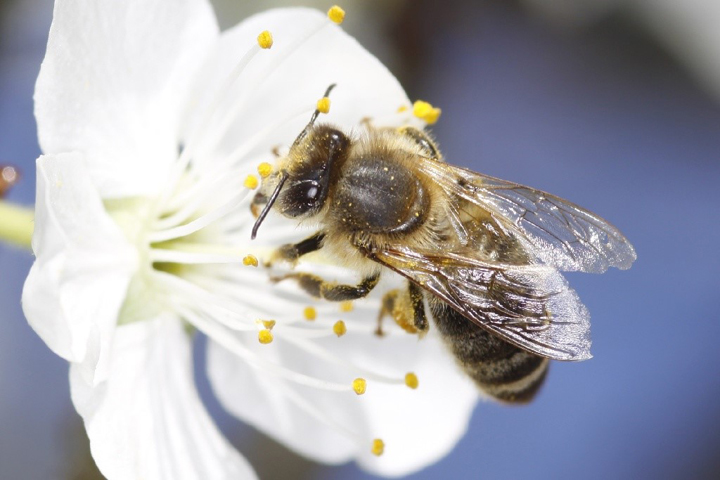TORONTO – A new study suggests bees that start foraging too early in their life may contribute to rapid colony collapse disorder where large numbers of bees die off.

READ MORE: Silence of the bees: ‘It has to stop. It just has to stop.’
Colony collapse disorder, or CCD, has been attributed to the widespread use of a particular group of insecticides, called neonicotinoids (sometimes referred to as NNIs or neonics).
In 2013, the European Union issued a temporary ban on their use. Here at home, the Ontario government confirmed in July that it was seeking to become the first province to restrict the use of neonics.
Concern over the use of the pesticides began in 2012 when Health Canada began to review concerns by beekeepers that they were suffering large losses of hives that were planted near corn fields were neonics were used widely.
However, in some places, the rapid collapse of the hive wasn’t completely understood. This new study of bees in Sydney, Australia, concluded that the bees reacted to stress — the loss of their hive’s foragers — by starting to forage when too young. And the younger they were, the more inefficient they were.
- 2021 heat dome fuelled by climate change, intensified wildfire risk: study
- B.C. introduces legislation recognizing Haida Gwaii Indigenous title
- Whale experts confident B.C. orca calf will survive, find family if rescue plan succeeds
- Chemical plant shuts down after high benzene levels detected near Ontario First Nation
“First, we found that those bees that began to forage earlier in life, were poor performers,” Clint Perry, a cognitive neuroscientist at Queen Mary, University of London and one of the study’s authors said. “That is they lived a shorter life, were more likely to die in their first few flights, and took fewer trips in their lifetimes.”
READ MORE: Beekeepers warn 6/10 of Ontario’s bees died during harsh winter
The study, which appeared in the online journal Proceedings of the National Academy of Sciences used radio transmitters to track thousands of bees throughout their entire lives.
A bee typically doesn’t venture out of the hive until it is about 20 days old, explained Tibor Szabo of the Ontario Beekeepers’ Association. Though it’s not unusual for younger bees to take over for older foragers.
“It’s not that young bees can’t go and do the job that traditionally, or in normal situations, older bees do,” Szabo said. “They will fill in that job effectively, if needed.” In fact, he said, colonies are often split and young bees do take over the jobs of the older bees.
However, this new study found that it was bees 14 days or younger that were inefficient.
“Bee colonies contain a precise balance of bees specialized in the different roles the society needs,” said Dr. Barron of Macquarie University’s Department of Biological Sciences in Australia.
“If that balance is upset by young bees starting to forage early, sometimes the colony cannot cope.”
The breakdown of the division of labour, as well as the loss of the critical adult populations leaves just the young to do the work, and they’re just not very good at it.
The study suggests that if there is a chronic element that continues to kill off any foraging bees, the colony begins to collapse, since younger bees are inefficient foragers and have to constantly be replaced by younger and younger bees. The whole process — from the start of the collapse to the complete collapse — can take about three weeks to a month, said Perry.



Comments